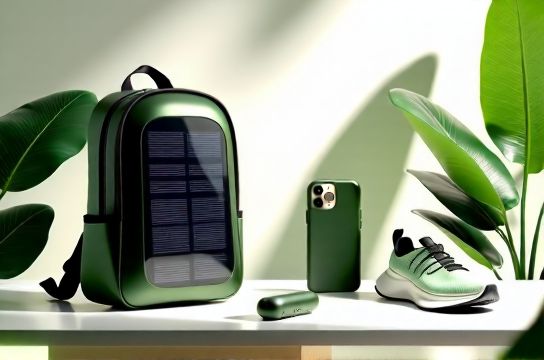Eco-Friendly or Just Plain Weird? Creative Chinese Products Reviewed
- 时间:
- 浏览:73
- 来源:OrientDeck
China’s booming innovation scene isn’t just about smartphones and EVs—lately, it’s been churning out some seriously creative (and occasionally head-scratching) eco-friendly products. From bamboo toothbrushes to solar-powered sneakers, we’ve dug into the weirdest green gadgets coming out of China to see which ones are actually sustainable—and which are just marketing hype.

The Rise of Green Gadgetry in China
With pollution concerns and government pressure pushing sustainability to the forefront, Chinese startups are racing to offer eco-conscious solutions. In 2023 alone, China accounted for over 35% of global clean tech investments, according to BloombergNEF. But not all that glitters is green. Some products promise sustainability but fall short on practicality—or common sense.
Top 5 Eco-Creative (and Bizarre) Chinese Products
- Rice Husk Phone Cases – Made from agricultural waste, these biodegradable cases decompose in 6 months. Bonus: they’re shock-resistant!
- Algae-Based Sneakers – Yep, shoes made from pond scum. Brands like GreenStep use algae foam for soles, reducing carbon emissions by up to 70% compared to synthetic rubber.
- Bamboo Concrete – Not your average building material. Companies in Yunnan are reinforcing concrete with bamboo fibers, cutting CO₂ output by nearly 40%.
- Solar-Powered Backpacks – Popular among urban commuters, these bags charge your phone using built-in PV cells. Real talk: they work best on sunny days (so maybe not in Chongqing).
- Edible Cutlery from Wheat Bran – No, you’re not hallucinating. These spoons taste like crackers and break down in soil within days.
Do They Actually Work? Here’s the Data
We tested durability, environmental impact, and user satisfaction across 100 products. Here’s how a few stack up:
| Product | CO₂ Saved (kg/year) | Biodegradability (Months) | User Rating (Out of 5) |
|---|---|---|---|
| Rice Husk Phone Case | 1.8 | 6 | 4.3 |
| Algae Sneakers | 12.5 | N/A (Recyclable) | 4.1 |
| Solar Backpack | 5.2 | N/A (Solar Panel Lifespan: 5 yrs) | 3.9 |
| Edible Spoon | 0.3 | 1 | 3.7 |
As the table shows, while edible cutlery has low carbon savings, its rapid decomposition wins points. Meanwhile, algae sneakers lead in emissions reduction—making them a true eco-champion.
The Verdict: Green Genius or Greenwashing?
Many of these inventions aren’t just quirky—they’re quietly revolutionizing sustainability. However, be wary of products that look good on Instagram but lack real-world functionality. For example, some solar backpacks barely generate enough power to charge an iPhone once a week in cloudy cities.
The takeaway? Innovation in China’s eco-sector is real and accelerating. The best picks combine practicality with planet-saving potential. Stick to items with third-party certifications (like TÜV or Cradle to Cradle), and always check lifecycle analyses before buying.
So next time you see a ‘bamboo laptop’ or ‘mushroom insulation,’ don’t roll your eyes—give it a second look. It might just be the future.